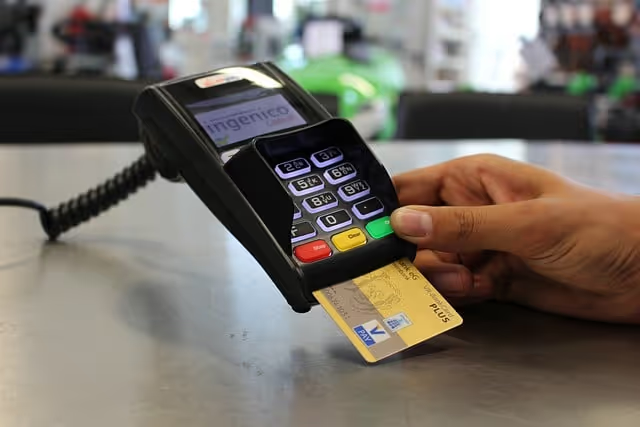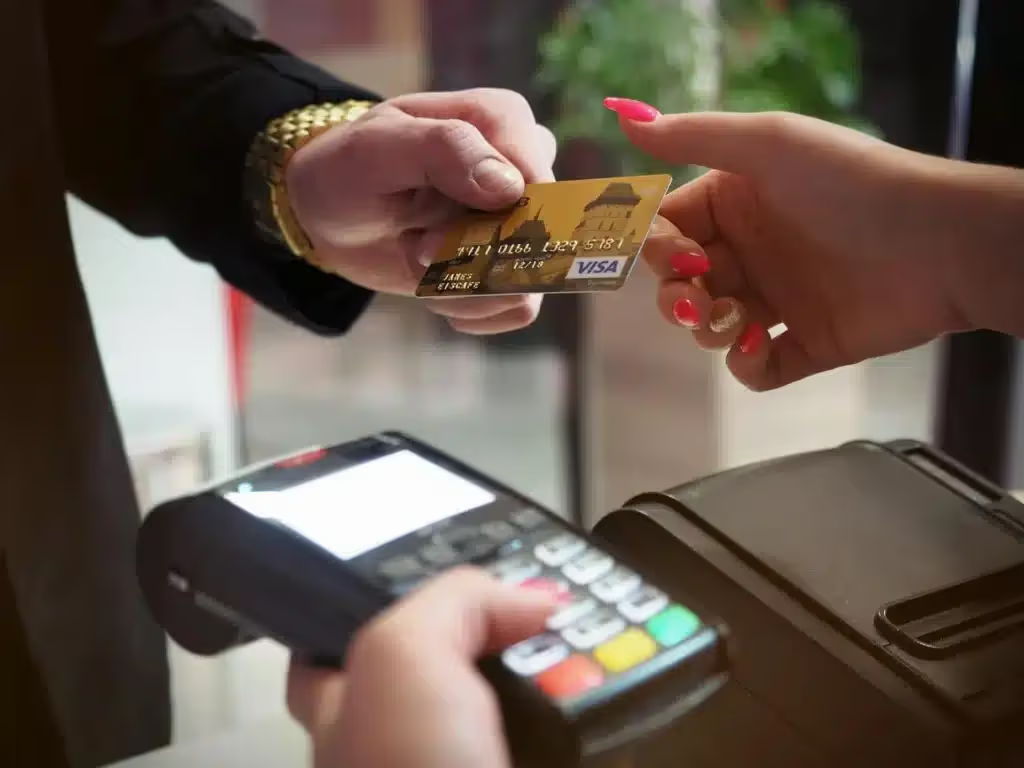Table of Contents
Join Thousands of Hotels Thriving with roommaster
The transition to roommaster is straightforward and efficient. Our implementation team handles data migration including reservations, guest profiles, and historical information.
A chargeback is a reversal of a credit card transaction, initiated by the cardholder’s issuing bank, which results in the return of funds to the consumer.
Although this mechanism was designed to protect consumers from unauthorized or fraudulent charges, in the hospitality industry, chargebacks can occur for various reasons beyond outright fraud.
For example, a guest might dispute a charge due to dissatisfaction with services, billing errors, or even misunderstandings about hotel policies.
But still, hoteliers need to know that while chargebacks serve as a consumer protection tool, they can also be misused by “friendly fraud,” where consumers dispute legitimate charges to obtain refunds while retaining the services received.

Chargebacks may seem like just another of the costs of doing business, but they can have far-reaching consequences for hotels. Beyond the financial loss of refunded transactions, chargebacks can negatively impact operations, reputation, and relationships with payment processors.
Chargebacks don’t just mean losing the money from a disputed transaction, hotels also face additional costs, including:
A 2016 study by LexisNexisi revealed that chargeback fraud costs merchants $2.40 for every $1 lost, accounting for product loss, banking fines, penalties, and administrative costs.
Managing chargeback disputes requires a lot of time and resources. The process requires gathering all the documentation, talking with banks, and in some cases, even requires arbitration. This takes a lot of attention from the main business activities and can affect daily operations and revenue, some reports estimates that the average cost of handling a chargeback is around $25 to $30 per caseii.
A lot of chargebacks can show issues in service quality or billing practices. And this perception can affect the trust among guests and partners, which may lead to decreased bookings and revenue. Frequent disputes can lead to:
For more insights on improving guest satisfaction, which can significantly reduce disputes, check out our post How to Measure Guest Satisfaction in the Hospitality Industry 2023.
Payment processors monitor chargeback ratios closely. And if a hotel’s chargeback rate exceeds 1% of total transactions, the business may be classified as “high-risk,” which can lead to:
And of course, without a functioning payment processor, hotels would not be able to accept credit card payments, which could severely impact everything from payments to guest satisfaction.
A chargeback fee is an additional cost required by the acquiring bank or payment processor when a customer disputes a transaction. These fees are meant to cover the administrative costs of handling the dispute.
The exact chargeback fee changes based on the hotel’s payment processor and the hotel risk profile, but normally is about:
If chargeback rates are too high, some payment processors may apply even more extreme penalties or may reserve holdbacks, reducing a hotel’s available cash flow.
Hotels are charged a fee at the same moment when a chargeback is initiated, even if they later win the dispute. This means hotels lose money upfront regardless of the outcome.
No. Even if a hotel successfully disputes a chargeback and the money is returned, the chargeback fee is still non-refundable.
Understanding the different categories of chargebacks can help hotels identify patterns and implement better policies to prevent them.
These happen when a stolen credit card is used to make a booking. The real cardholder will dispute the transaction and the hotel is forced to refund the amount.
This type of chargeback happens when a guest disputes a charge they did authorized.

Guests may dispute charges if they claim the service was not good or the hotel was not clear about the amenities.
A 2022 study by Ethoca found that over 30% of chargebacks in the hospitality industry are due to service-related disputes, so enhancing the service will reduce the chargebacks in your hotel.
These chargebacks occur due to technical issues, like:
In the next section, we’ll explore best practices for hotels to avoid chargebacks.
Proactive measures will prevent chargeback disputes before they happen, try implementing the following best practices, so your hotel can reduce chargebacks, minimize financial losses, and protect its reputation.
Not enough transparency is one of the top reasons guests dispute charges. Be sure to clearly state policies on cancellations, no-shows, deposits, and incidental charges:
Tip: Try to include a digital signature or checkbox agreement during the online booking process to prove guest consent.
Many guests dispute charges because they don’t recognize them on their bank statements. Try to be very descriptive in the charges, use:
Adding specific details makes it easier for guests to identify legitimate charges.
Prevent fraudulent transactions by ensuring secure payment processing through your hotel booking engine:
A signed agreement acts as evidence in chargeback disputes. Best practices include:
Tip: Store digital copies of receipts for at least 120 days after checkout, because chargeback disputes can occur later.
Delayed refunds often lead guests to file chargebacks instead of waiting. To prevent this:
Incidental charges like minibar usage, parking, or damage fees are frequent sources of chargebacks. Do this to avoid disputes:
Tip: When charging for damages, include photos and detailed documentation as proof.
Many guests dispute charges because they couldn't resolve issues with the hotel directly. A comprehensive property management system helps by:
Fact: According to a chargeback guide, inadequate customer service accounts for 10% to 30% of all chargebacks.

Hotels should invest in fraud prevention tools that flag high-risk bookings, like:
Ensure all employees understand:
Disputes often occur when guests expect one policy but encounter another. Using a hotel channel manager helps ensure that cancellation, refund, and deposit policies are synchronized across:
Also, to better understand the evolving role of OTAs and how to stay ahead, see our article on Future of OTAs in the Hospitality Industry: Trends & Predictions.
A hotel payment gateway like roommaster Payments can help reduce chargebacks with:
By implementing these best practices for hotels to avoid chargebacks, supported by robust hospitality management software, hoteliers can protect their business from financial loss, maintain a positive guest experience, and ensure long-term profitability.
Chargeback disputes are not always fair. Sometimes, hotels face chargebacks due to friendly fraud. To fight these claims successfully, hotels need a strong strategy and proper documentation.
To be able to fight an unfair chargeback, you need to present compelling proof that the charge was legitimate. Essential documents may include:
Chargebacks come with strict deadlines, generally 7 to 21 days, depending on the card issuer. Delays in responding can result in automatic losses, even if your case is valid.
Confusing billing descriptors are one of the most common reasons for accidental chargebacks. Make sure your hotel’s name appears clearly on credit card statements.
Your payment processor can be a valuable ally in fighting chargebacks, always work with them.
roommaster provides powerful solutions to help hotels minimize chargebacks and manage disputes efficiently:
With roommaster’s technology, hotels can protect their revenue, reduce disputes, and streamline chargeback management, ensuring a smoother payment experience for both guests and staff.
For a holistic approach to hotel management that ties in these strategies, see our guide 6 Steps to Successful Hotel Management.
A chargeback at a hotel is the process where a guest disputes a credit card transaction. This dispute prompts the card issuer to reverse the transaction, effectively refunding the guest while placing the financial burden (and additional fees) on the hotel.
A chargeback reverses the payment made for a hotel service. This means the funds are withdrawn from the hotel’s account and returned to the guest, often along with extra fees and penalties. It can impact the hotel’s cash flow, reputation, and may signal issues with billing practices or guest satisfaction.
The most common reason is friendly fraud, where a guest disputes a legitimate charge, either because they forgot about the transaction or to avoid payment. Other causes include unauthorized transactions, processing errors, and unsatisfactory guest experiences.
The response window varies by payment network, but generally hotels have 7 to 21 days to submit evidence and contest a chargeback. That’s why it’s essential to act quickly.
Yes! roommaster provides:
{{cta-strip}}
The transition to roommaster is straightforward and efficient. Our implementation team handles data migration including reservations, guest profiles, and historical information.
See how roommaster's unified platform can work for your property. Our team will walk you through features tailored to your specific needs and operations.